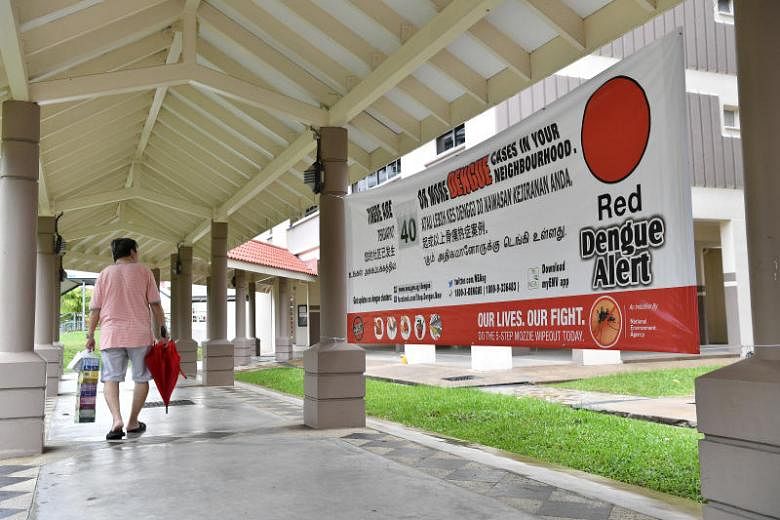SINGAPORE - Two men have died from the dengue virus as of Friday (Feb 8), according to the Health Ministry and the National Environment Agency (NEA).
The first victim is a 74-year-old man who lived in Bedok Reservoir and died on Feb 3. The second is a 77-year-old Hougang Avenue 3 resident who died on Feb 7.
One of the deaths took place in an active dengue cluster in Bedok, which had 167 dengue cases reported as of Friday. The cluster comprises Bedok Reservoir Road, Jalan Damai, Jalan Tenaga and Kaki Bukit Avenue 1, where the NEA has been "conducting multiple rounds of inspections" since Nov 23.
In Hougang Avenue 3, six dengue cases had been reported as of Friday. Two mosquito breeding habitats had been destroyed.
Last year, five people aged 41 to 75 years old died of dengue fever, according to data from the NEA website.
The NEA will be taking enforcement action against owners whose premises contained mosquito breeding habitats.
Dengue continues to be a problem in Singapore, with 455 cases reported in the first two weeks of January, thrice as many compared with the same two-week period last year.
Last year, there were 3,285 reported cases of dengue, almost 20 per cent more than in 2017.
But there have been efforts to combat the dengue menace. In Nee Soon East and Tampines West, the population of dengue-carrying mosquitoes has been cut by at least half after the release of sterile male mosquitoes, which leads to eggs that cannot hatch. It is part of a NEA scheme called Project Wolbachia and it will be expanded to wider areas in the two estates.
The Wolbachia-Aedes mosquitoes' job is to control and reduce the Aedes aegypti mosquito population, the primary species responsible for transmitting dengue and Zika. Eggs produced from the union of a male Wolbachia-Aedes mosquito and the female Aedes mosquito will not hatch. This limits the number of mosquito larvae each female Aedes mosquito can produce.
The NEA reminds the public to play their part to help stem dengue transmission in affected areas, including by applying insect repellent and checking their premises daily for potential mosquito breeding habitats.


